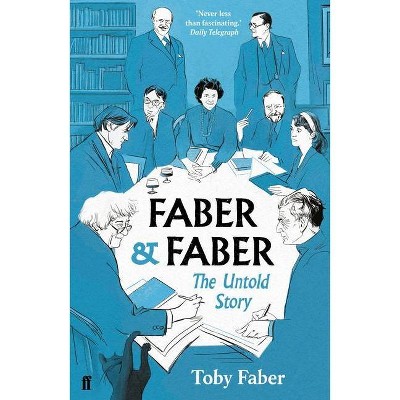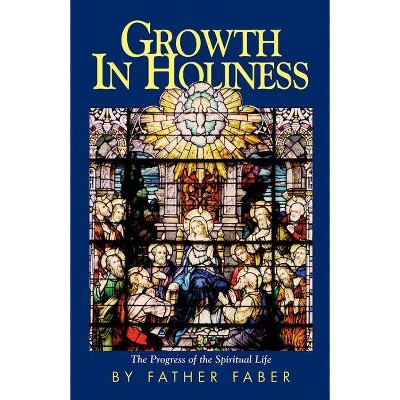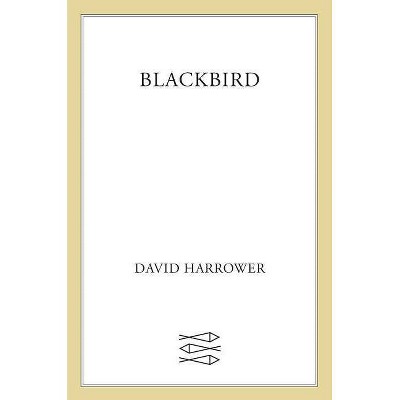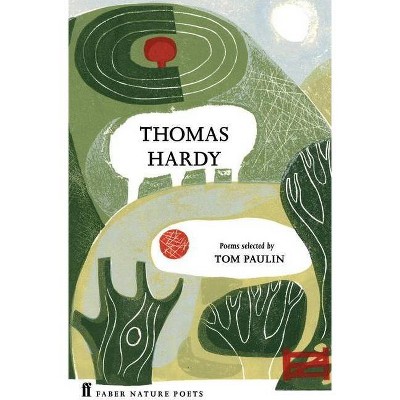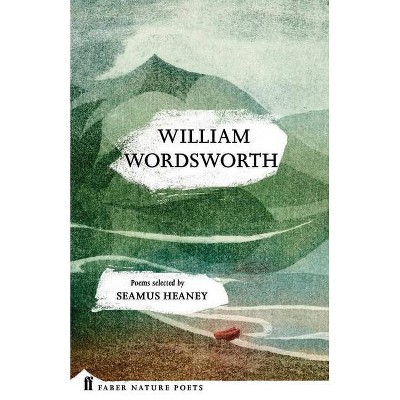Faber & Faber - by Toby Faber (Hardcover)
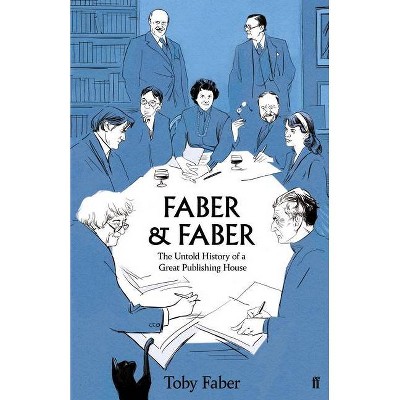
Similar Products
Products of same category from the store
AllProduct info
<p/><br></br><p><b> About the Book </b></p></br></br>Celebrating the 90th anniversary of one of the world's most iconic independent publishing houses--home to such literary superstars as T.S.Eliot, William Golding, Ted Hughes, and Sylvia Plath--the grandson of its founder takes readers deep inside the evolution of the company.e company.<p/><br></br><p><b> Book Synopsis </b></p></br></br><b>To celebrate its 90th anniversary, here is the untold story behind one of one of the world's most iconic publishing houses.</b><br>Faber and Faber is one of the world's greatest independent publishers. Literary superstars like T.S.Eliot, William Golding, Ted Hughes, and Sylvia Plath are synonymous with the name "Faber", as are the leafy squares of twentieth-century Bloomsbury. But what is the real tale behind the house that brought together these authors? And how did a tiny firm set up by two men in 1925 - weathering obstacles from wartime paper shortages to dramatic financial crashes - survive to this very day?<br>Toby Faber has grown up with these stories, and uses a range of humorous and surprising sources to tell the history of the publisher in its own words. Drawing on material from memos to board minutes and unpublished memoirs, Faber takes us deep inside the evolution of the company: and along the way, we meet a cast of colorful characters that are stranger than fiction, whether poets or novelists, managers or editors.<br>Decade by decade, Faber's portrait of one company's history becomes not only that of an entire century, but a hymn to the role of the arts in public life. It<i> </i>shows us how publishing can shift a nation's cultural conversation - and speaks directly to the way we engage with literature today.<p/><br></br><p><b> Review Quotes </b></p></br></br><br>"The persistence of Faber & Faber, which is now celebrating ninety years as an independent publisher, makes for a remarkable case study.... The Faber story certainly speaks volumes about the mix of passion, shrewdness, and luck that it takes to keep such an operation afloat." --<i>The New Yorker</i><br><br>***"Anyone with an interest in the history of English-language publishing won't want to miss this thoroughly charming history of the venerable British firm of Faber & Faber, which is celebrating its ninetieth anniversary. The story of how Faber has managed to remain independent for nearly a century--and during a time of rampant consolidation in the industry--has much to do with luck, of course, but also with determined resilience, especially from the founder, Geoffrey Faber, who died in 1961. For most readers, though, the main point of interest here will be the substantial role in Faber's history played by its most famous editor, T. S. Eliot, who was hired by Faber in the twenties and whose stature as a poet and critic gave the firm instant credibility. Faber's reputation as a cutting-edge poetry publisher only grew as Eliot brought W. H. Auden, Stephen Spender, Philip Larkin, and Ted Hughes to the house during the next several decades. But Eliot's greatest contribution came later, after his death, with the sale to Andrew Lloyd Webber of the rights to Old Possum's Book of Practical Cats--the eventual success of the musical Cats did more than any individual book to keep the company solvent and independent through the decades. Author Tony Faber, Geoffrey's grandson, wisely eschews a straightforward narrative history in favor of an oral-history approach, drawing liberally on correspondence between publishers, editors, and authors, but also supplying valuable connective tissue in the form of brief but often witty introductions and commentary. The result is a surprisingly jaunty, thoroughly readable look at literary publishing in the twentieth century."-- Bill Ott, <i>Booklist</i><br><br>"Culled from 90 years' worth of correspondence, board minutes, and other material from the Faber & Faber archives, this compilation from Faber (Fabergé's Eggs), the company's former managing director (and its founder's grandson), offers a uniquely close-up view of 20th-century literary history. It includes fascinating stories about now-canonical works, such as how Lord of the Flies was published by the company despite being rejected by a reader's note that dismissed the initial manuscript as an "absurd & uninteresting fantasy about the explosion of an atom bomb on the colonies." However, its greatest value lies in revealing the personalities of Faber & Faber's key figures, including Geoffrey Faber, who founded it in 1929; despite the company's name, he had no partner, but simply reasoned, as a friend advised him, "You can't have too much of a good thing." Perhaps most notably, the book gives a new view of longtime Faber & Faber director T.S. Eliot, who comes across as humane, witty, and deeply dedicated to the company, and whose friendship with Geoffrey Faber emerges as one of the 20th century's great unsung literary partnerships. Brimming with humanizing details and unforgettable literary personalities, Faber's compilation will be a delight for literature fans."--Agent: Peter Straus, Rogers Coleridge & White.(Aug.), <i>Library Journal</i><br><br>"A namesake and descendant delivers a richly detailed biography of the distinguished British publishing house.After World War I, returning veteran Geoffrey Faber found himself relieved from a job for which he didn't have much talent, running a brewery, and talked his way into a medical publishing house, setting about diversifying the list with a literary magazine, works of fiction, and "legal cram books." While the last never came about, writes Faber (Faberge's Eggs: The Extraordinary Story of the Masterpieces That Outlived an Empire, 2008, etc.), Geoffrey eventually shaped a list dominated by literature, publishing many of the greats. As he wrote to a friend, the company's new premises on Russell Square provided an incentive "to build up as fine a publishing business as we can to inhabit it!" As the author writes in this documentary biography of the company, Geoffrey was fortunate in taking on the American poet T.S. Eliot, so much an Anglophile as to be more English than the English, as an early editor. Eliot often rejected submissions, but he also encouraged work by poets such as W.H. Auden and Christopher Isherwood, helping make Faber a major presence in the literary world from the 1930s on. At the same time, other editors and directors brought in notable writers such as William Golding, who delivered a manuscript that he called A Cry of Children, soon to be superseded by a Faber editor's much more memorable Lord of the Flies. The author isn't shy about sharing the fiscal details of publishing, opening with the old adage that the way to make a small fortune in the business is to start with a large one. He also provides insight into the publishing work of rock legend Pete Townshend, who, despairing of the future of his band, came to work for Faber & Faber in 1983, writing what one colleague called "good old-fashioned publishing reports, very serious, very diligent reports on the books we're considering."Students of modernist literature and publishing history will find this a pleasure. "-- Kirkus<br>
Price History
Price Archive shows prices from various stores, lets you see history and find the cheapest. There is no actual sale on the website. For all support, inquiry and suggestion messages communication@pricearchive.us
